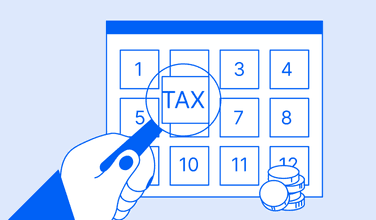Company Pension Contributions for Directors - Retirement Planning
Retirement planning is vital for UK company directors. This article delves into company pension contributions, discussing their significance, pros, cons, and suitable schemes. Navigate retirement planning complexities and optimise savings with insights from Osome.

Retirement planning is a crucial aspect of financial management, especially for company directors in the UK. One important consideration in retirement planning is the use of pension contributions. Company pension contributions for directors refer to the financial contributions made by a company on behalf of its directors into a pension scheme. This is especially pertinent for those in roles such as a limited company director pension beneficiary.
In this article, we will explore what pension contributions are, the advantages and disadvantages of making them, their importance, especially for a pension for limited company director, and delve into various nuances, including the role of company director pension schemes.
Skip to:
What Is a Pension Contribution?Advantages and Disadvantages of Pension Contributions
Types of Pension Schemes for Directors
Eligibility and Participation
Company Pension Contribution Limits and Regulations
Company Contributions vs. Personal Contributions
Tax Implications of Company Pension Contributions
Conclusion
What Is a Pension Contribution?
A pension contribution, such as ltd company pension contributions, refers to the money that you or your company pay into a pension scheme on your behalf. This deliberate effort is aimed at ensuring you, especially if you're a company director, have a source of income later in life. By making regular contributions, you are building up a pension pot that will grow over time and provide you with financial stability during your retirement years.
Advantages and Disadvantages of Pension Contributions
Like any financial decision, making pension contributions comes with its own set of advantages and disadvantages. Let's take a look at some of the key pros and cons.
Advantages
- Tax relief: One of the biggest advantages of making pension contributions is the tax relief you receive. The UK government incentivises pension saving by offering tax relief on contributions up to certain limits. This means that the amount you contribute to your pension is deducted from your taxable income, resulting in a reduction in your income tax bill.
- Employer contributions: Company directors may benefit from both their personal contributions and additional contributions made by their company. Many companies offer attractive pension packages, including matching contributions, which can significantly boost your retirement savings.
- Long-term growth potential: Pension contributions have the potential to grow over time due to investment returns. By starting early and consistently contributing to your pension, you can take advantage of compound interest and potentially build a substantial retirement fund.
Disadvantages
- Limited access: Pension contributions are subject to strict rules and regulations. Generally, you cannot access your pension savings until you reach the age of 55, except in specific circumstances such as ill health. This restriction on access means that your money is locked away and cannot be used for other financial needs or emergencies.
- Contribution limits: There are limits on the amount you can contribute to your pension while still receiving tax relief. These limits are known as annual allowance and lifetime allowance. Breaching these limits can result in additional tax charges.
Types of Pension Schemes for Directors
Selecting a pension scheme as a director, whether it's a pension for directors of limited company or any other, offers several options. The most common types include:
Defined Contribution (DC) Pension
This type of pension scheme allows you to build up a pension pot based on your contributions and investment performance over time. The final pension amount will depend on how much you and your company contribute, as well as the investment returns achieved.
Defined Benefit Pension Schemes
Often known as "final salary" pensions, these are based on your salary and how long you’ve worked for your employer. Unlike defined contribution schemes where your pot can fluctuate based on investments, here, you get a predetermined amount on retirement.
Each pension scheme has its own unique features, benefits, and considerations. It is important to research and seek professional advice to determine which scheme best suits your individual needs and goals.
Eligibility and Participation
As a company director, you might wonder about company pension contributions for directors HMRC regulations. The good news is that directors are generally eligible for a pension scheme, regardless of their company's size. But understanding the nuances of pension contributions limited company regulations can be beneficial.
Who qualifies for company pension contributions?
All directors, whether of large enterprises or small companies, can qualify for company pension contributions. The key is being salaried. However, the exact benefits and amounts may vary depending on company policy and the specific pension scheme.
Director's role in pension scheme participation
As a director, your participation might be dual: both as an employee and as a decision-maker. While you can decide on your personal contributions, you can also influence company policies regarding employer contributions, enhancing benefits for both you and your employees.
To ensure you meet all the necessary requirements, it is advisable to consult with a financial advisor who can guide you through the process and provide personalised advice based on your unique circumstances.
Company Pension Contribution Limits and Regulations
There are certain limits and regulations in place when it comes to company pension contributions. These limits are designed to prevent excessive tax benefits for directors and ensure fairness across different pension schemes.
The two main limits to be aware of are the annual allowance and the lifetime allowance:
Annual allowance and lifetime allowance
- Annual allowance — the annual allowance is the maximum amount you can contribute to your pension each year while still receiving tax relief. Currently, the annual allowance for most individuals is £40,000. However, it is worth noting that the annual allowance may be reduced for high earners. This is known as the tapered annual allowance.
- Lifetime allowance — the lifetime allowance is the maximum amount of pension savings you can accumulate throughout your lifetime without incurring tax charges. For the tax year 2021/2022, the lifetime allowance is £1,073,100. Any pension savings above this limit may be subject to hefty tax charges.
It is important to be mindful of these limits when making pension contributions to ensure you do not exceed the thresholds and incur unnecessary tax charges. If in doubt, check with Osome accounting.
Regulatory Compliance and Reporting
Staying compliant is crucial. This includes ensuring that company contributions for all employees, including directors, are correctly reported, adhering to the set limits, and promptly addressing any breaches in contribution limits.
Company Contributions vs. Personal Contributions
When it comes to building up your pension pot as a director, you'll often encounter ltd company pension contributions. Let's delve into the differences between company contributions and personal contributions.
Understanding the differences and benefits
While both personal and company contributions aid in building your pension pot, company contributions often come with added benefits like matched contributions, which can amplify your savings. On the other hand, personal contributions give you more control over your retirement planning pace.
- Company contributions — company contributions refer to the funds that your company pays into your pension scheme on your behalf. These contributions are often used as part of an employment package or as a way for companies to attract and retain talented directors. Company contributions can significantly boost your pension savings and provide additional security for your retirement.
- Personal contributions — personal contributions, on the other hand, are the funds that you contribute to your pension scheme from your own earnings. These contributions are typically made from your salary or other personal income. Personal contributions allow you to take control of your retirement planning and build up your pension pot based on your own financial situation and goals.
It is worth noting that there may be limits on the amount of personal and company contributions that can receive tax relief, as mentioned earlier.
Maximising retirement savings with company contributions
Directors can strategise to maximise benefits. For instance, a higher rate of company contribution in lieu of a salary increase can result in substantial tax savings, allowing the pension pot to grow faster. Additionally, directors should be aware of the legalities around businesses and understand concepts like company dissolution to ensure a holistic approach to retirement planning.
Tax Implications of Company Pension Contributions
When it comes to tax implications, company pension contributions can offer significant advantages. Here are some key points to consider:
Tax relief and deductibility for companies
When companies make pension contributions on behalf of their directors, they can typically deduct these contributions from their business profits before calculating tax, potentially reducing their corporation tax bill. Furthermore, companies need to keep track of their tax reference number for accurate reporting and compliance.
Both personal and company pension contributions attract tax relief. This means that the amount contributed is deducted from your taxable income, reducing your overall tax bill.
From a company perspective, contributions made to an employee's pension scheme are typically allowable as a deduction for corporation tax purposes. This means that the company can reduce its taxable profits by the amount of pension contributions made on behalf of directors.
Both personal and employer pension contributions are exempt from National Insurance Contributions, providing further tax advantages.
Directors' tax treatment of pension contributions
For directors, pension contributions reduce their taxable income, leading to income tax savings. However, it's crucial to stay within the allowances to avoid unexpected tax charges. To ensure timely and accurate tax reporting, being informed about the key tax deadlines and dates is paramount. Always seek advice to ensure you're optimally balancing contributions and tax relief.
Talk to Osome’s expert accountants to fully understand the tax implications specific to you. We’ll help you optimise your retirement planning properly.
Conclusion
Company pension contributions are pivotal in retirement planning, especially when discussing pension for limited company director. They come with tax advantages, employer contributions, and potential growth. However, considering the regulations surrounding them, like the company pension contributions for directors HMRC guidelines, is vital. By understanding the available pension schemes, eligibility, and the associated tax implications, directors can make informed decisions for a comfortable retirement.







